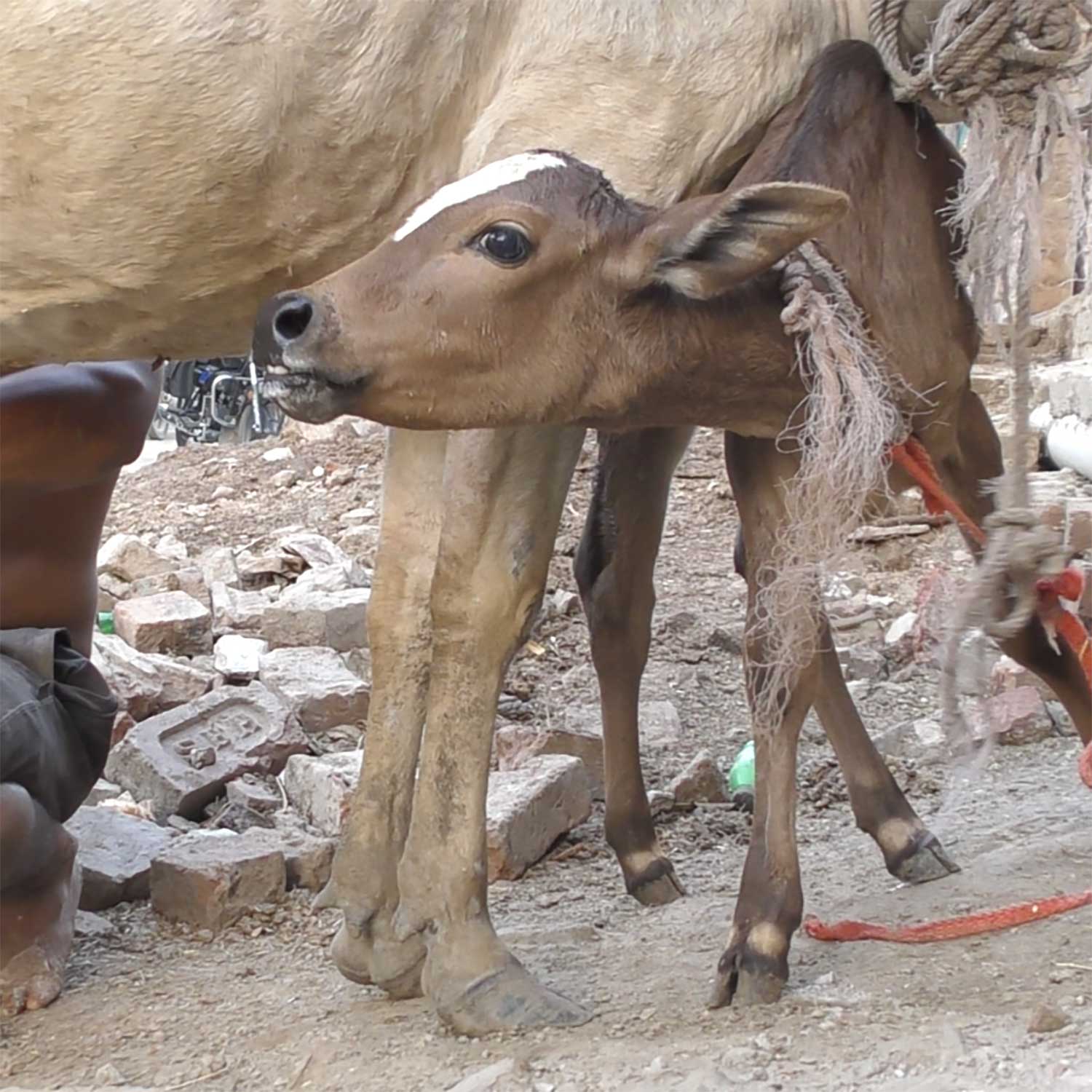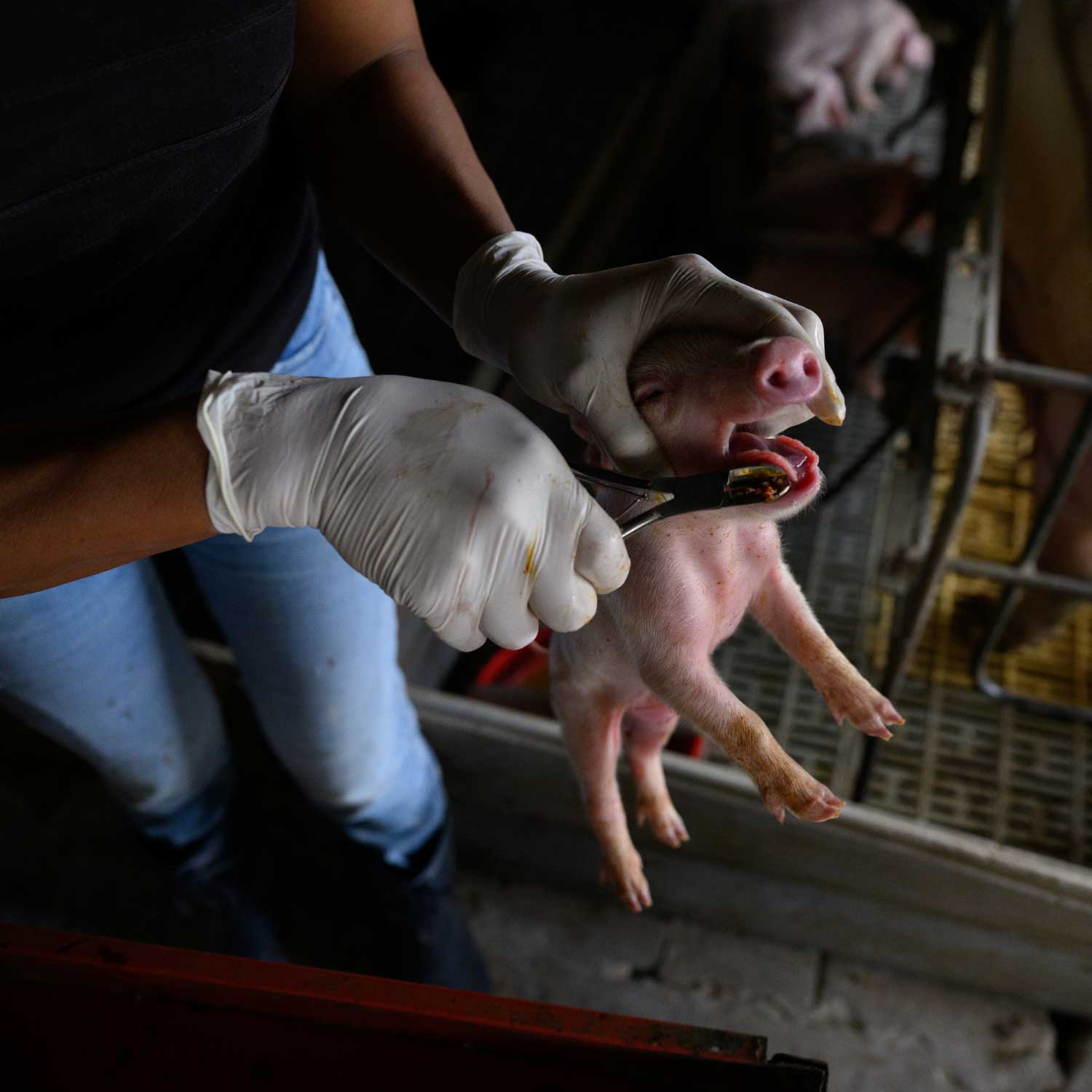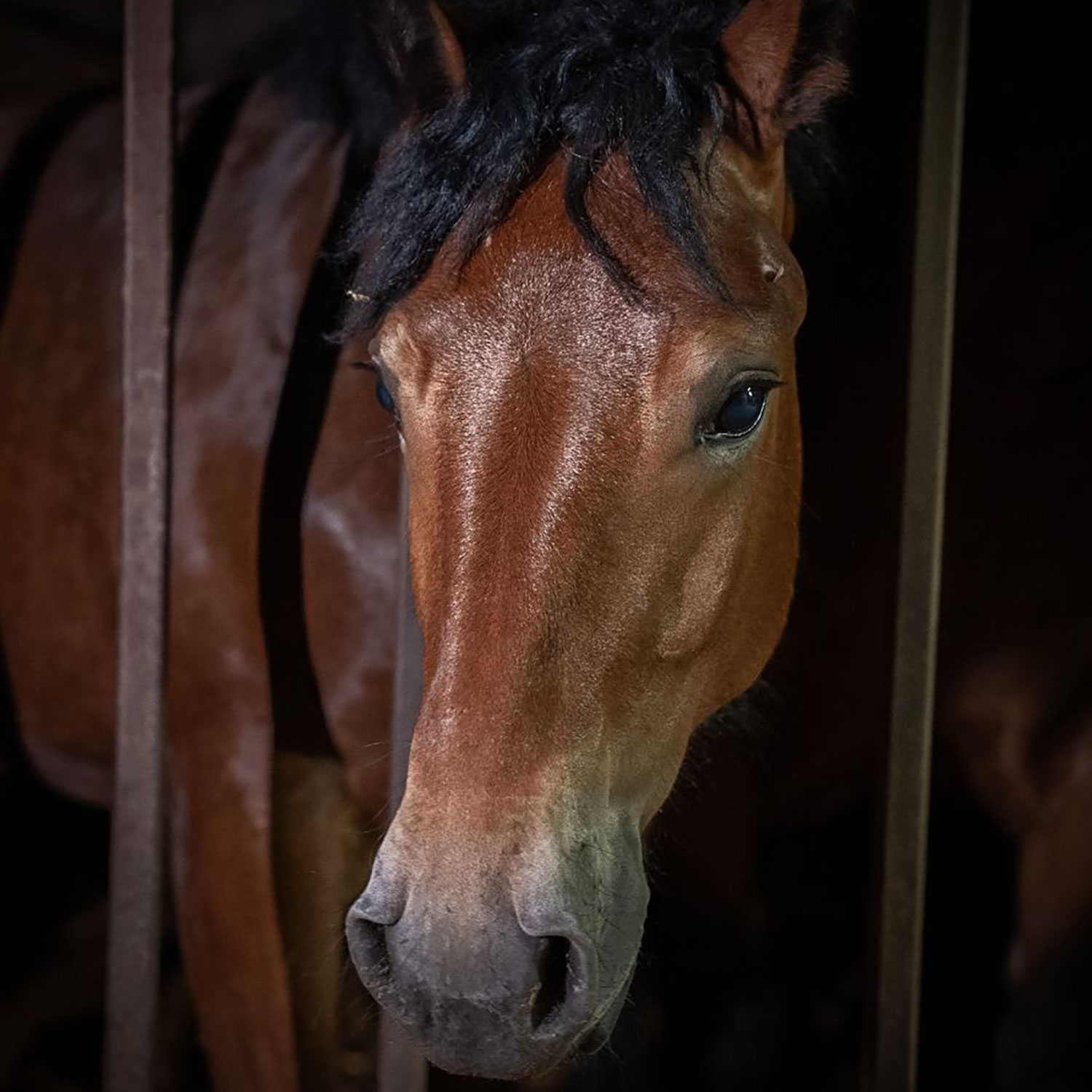Brazil’s Self-Control Law faces Supreme Court scrutiny
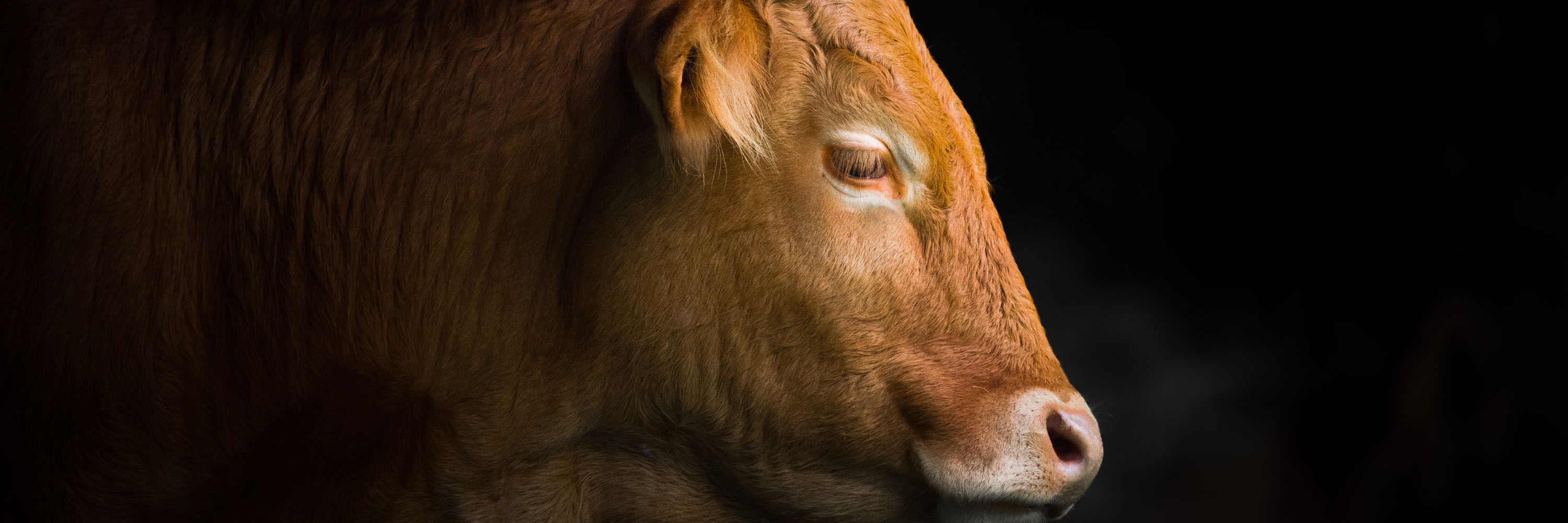
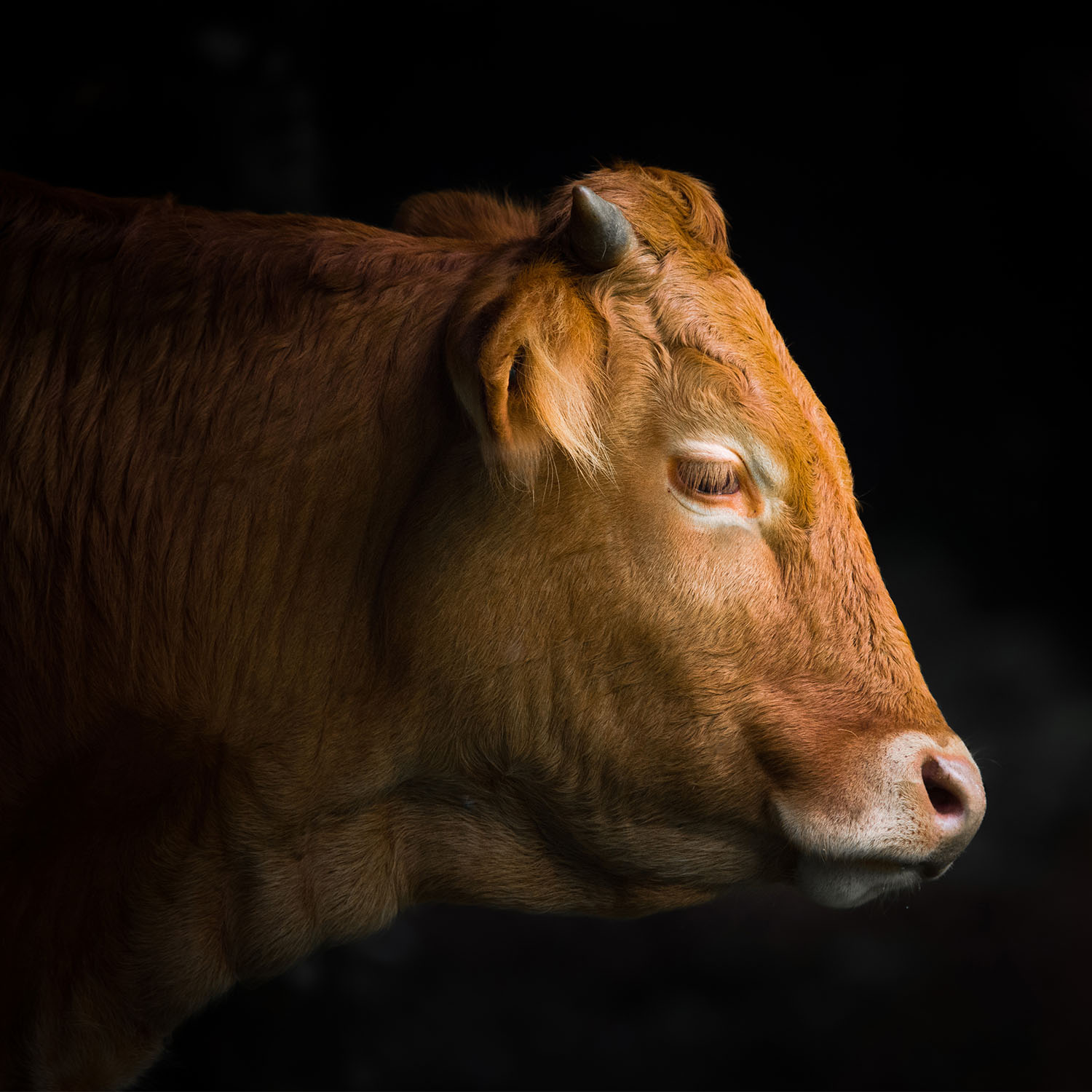
- Brazil’s Self-Control Law allows slaughterhouses to conduct their own inspections in many cases, cutting back on government oversight.
- This has raised concerns about animal cruelty, sanitation issues, fraud, and zoonotic diseases.
- In 2023, Animal Equality’s investigators exposed severe abuse in unregulated slaughterhouses, where cows are beaten, dragged, and skinned alive. This footage highlights the dangers of leaving the industry unchecked.
- In 2025, Animal Equality released another investigation of slaughterhouses in rural São Paulo state, exposing the consequences of deregulation.
- Advocates–including Animal Equality–have brought the case to Brazil’s Supreme Court, arguing that the Self-Control Law is unconstitutional.
Update January 2025 – Animal Equality released an investigation of slaughterhouses in rural São Paulo state, exposing widespread animal cruelty. By then, the Supreme Court had approved Animal Equality’s request to support the case against the Self-Control Law as a “friend of the court.”
Update September 2023 – Animal Equality asked to join the Supreme Court case against the Self-Control Law as a “friend of the court.”
Update March 2023 – Animal Equality exposed ongoing abuse in Brazil’s unregulated slaughterhouses, warning that the Self-Control Law could lead to similar cruelty.
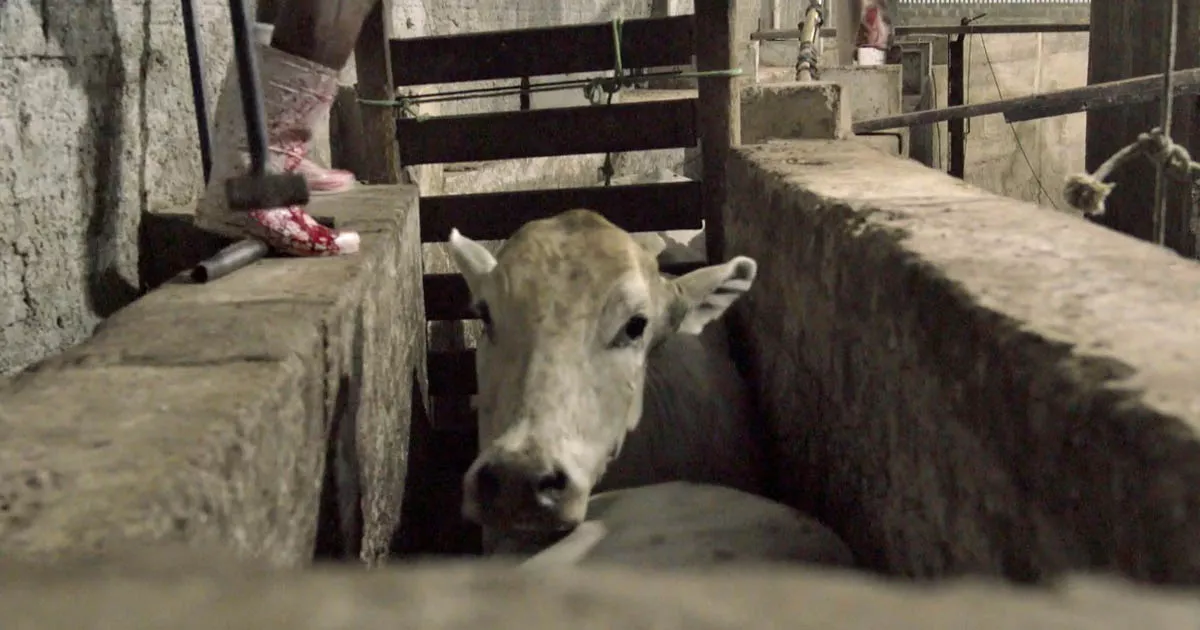
Update February 2023 – With help from Animal Equality, the National Confederation of Food Industry Workers (CNTA) filed a Supreme Court case to stop the Self-Control Law. The labor union says the law puts workers’ health at risk and violates Brazil’s Constitution.
Update December 2022 – By the end of 2022, Animal Equality had gathered 58,000 petition signatures against the Self-Control Bill. Over 38 organizations joined in signing letters to lawmakers, urging them to oppose it.
This December, Animal Equality and other groups attended a Senate session to oppose the bill. Despite these efforts, the full Senate approved it, and current President Jair Bolsonaro signed it into law.
Update November 2022 – Animal Equality sent a report to Brazil’s Workers’ Party, detailing the dangers of the Self-Control Bill. Brazil’s incoming President–Luiz Inácio Lula da Silva (“Lula”)–is a member of this party.
Update September 2022: Animal Equality–with the help of a state lawmaker–organized a public hearing at São Paulo’s State Assembly. Fellow organizations gathered at the event and publicly opposed the Self-Control Bill.
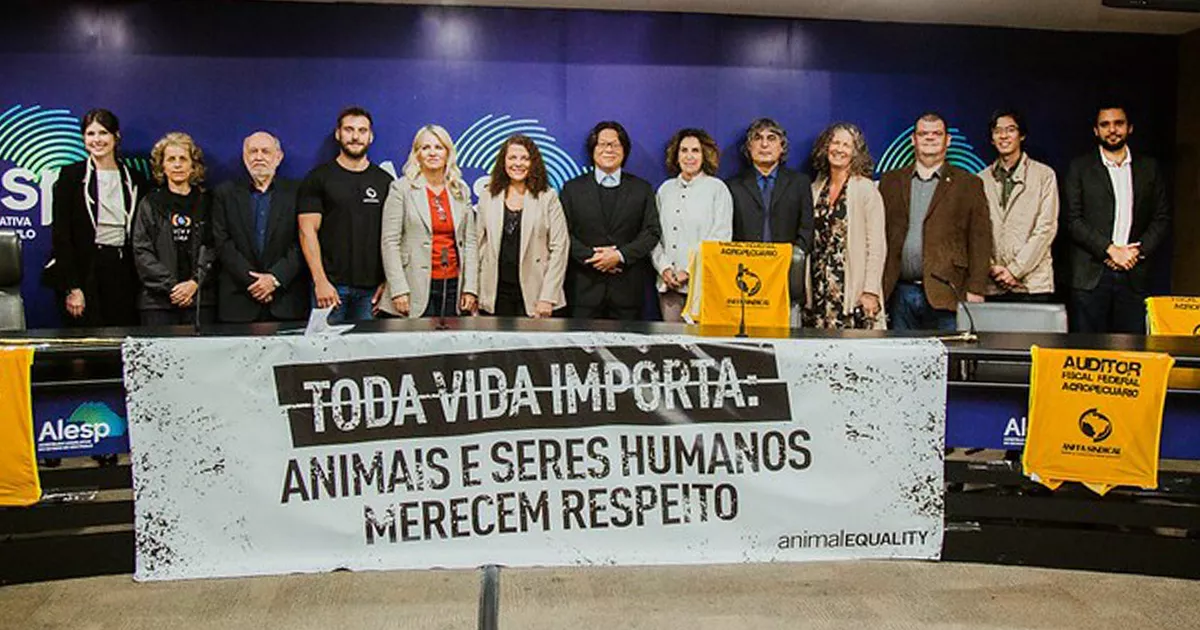
Update July 2022 – While Senate committee members had already approved the bill in June, Animal Equality stepped in to request a vote by the entire Senate. Debates began soon after, delaying the bill’s passage by six months.
Animal Equality has uncovered widespread animal cruelty and critical health violations in three Brazilian slaughterhouses. Footage reveals workers beating cows, dragging them with ropes, and skinning them alive.
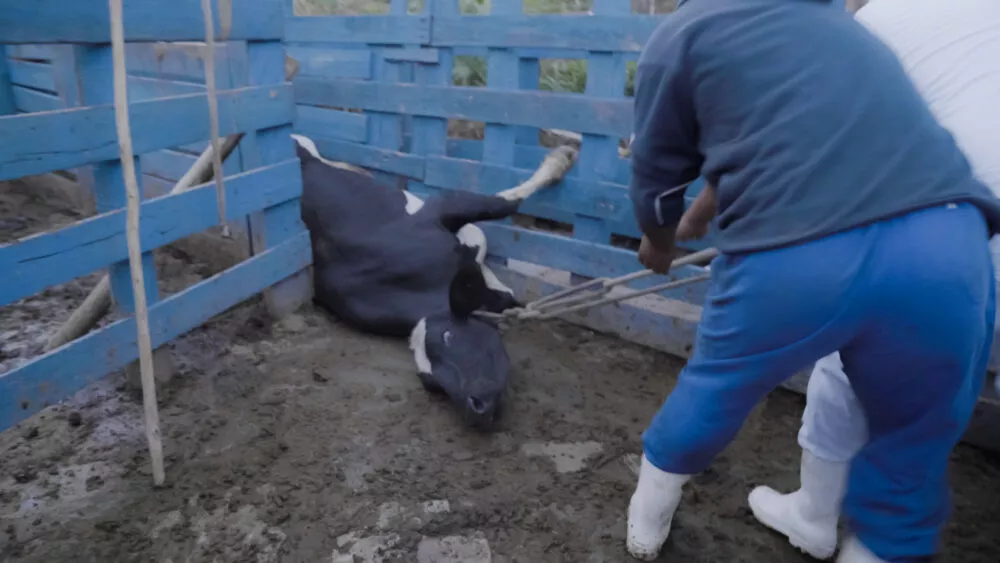
Investigators also found meat contaminated with feces, exposing severe lapses in sanitation. These findings come as Brazil’s Self-Control Bill advances rapidly through the federal government. Backed by the meat industry, the bill passed Senate committees on June 23, 2022.
Critics warn this bill could lead to increased animal cruelty, unsafe food practices, and significant environmental harm.
Workers prioritize speed in the slaughter process, disregarding animal welfare protocols… [T]hese animals have their limbs and skin removed while still alive and conscious, enduring extreme pain and suffering. Workers who intentionally cause pain to animals are not reprimanded, normalizing such cruelty. Investing in oversight is essential to reverse this situation and protect both the population and animals. – Animal Equality investigator
What is the Self-Control Bill?
The Self-Control Bill would allow private companies to handle their own slaughterhouse inspections in many cases, reducing government oversight. These companies could rely on their own employees or hire private auditors.
Critics say this conflict of interest puts profits ahead of animals and public safety–both of which are protected by Brazil’s Constitution.
The bill also caps fines for violations at R$150,000 (about $30,000 USD). Advocates say this amount is too low to deter large companies earning millions each year from breaking the law.
Animal Equality is advocating for strict limits on private involvement. Critics argue that private companies should be limited to basic tasks, like data collection, while the government certifies compliance and enforces regulations. Without these safeguards, the system could fail to prevent cruelty.
Exposing a global trend
Over the last 20 years, Brazil has drastically reduced its inspection workforce–even as meat production has risen–raising concerns about accountability.
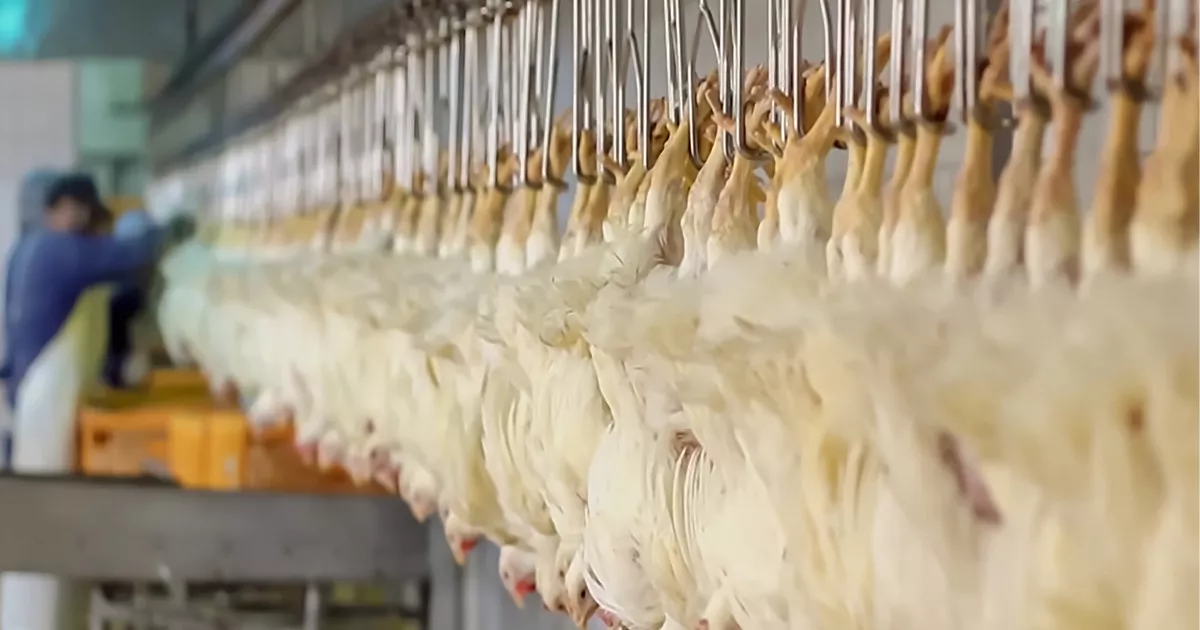
A similar trend occurred in the U.S. in 2020 when the USDA allowed slaughterhouses to self-inspect. Investigations found that this led to extreme animal cruelty, such as birds being improperly stunned, slammed into shackles, or boiled alive.
Higher production speeds make cruelty inevitable. Whenever the industry polices itself, animals suffer. – Carla Lettieri, Executive Director of Animal Equality in Brazil
Advocates speak out
More than 40 organizations have united to oppose the Self-Control Bill. Animal Equality is working alongside animal protection groups, environmental organizations, consumer rights advocates, public health experts, and government inspectors to stop this dangerous legislation.
Before the Senate committee votes in June, Animal Equality and the Brazilian Association of Inspectors sent an open letter to lawmakers.
In the letter, they called for a delay in the voting process and asked for a public hearing where citizens and experts could share their opinions. Advocates argued that, up until that point, the Senate had mainly consulted with the meat industry while overlooking other important perspectives.
Despite these efforts, the Senate passed the bill. It now awaits approval by the President.
You have the power to act
As governments around the world weaken oversight of the meat industry, consumers can take action into their own hands. Choosing plant-based foods helps spare animals from cruelty, protects public health, and challenges an industry that prioritizes profits over ethics.
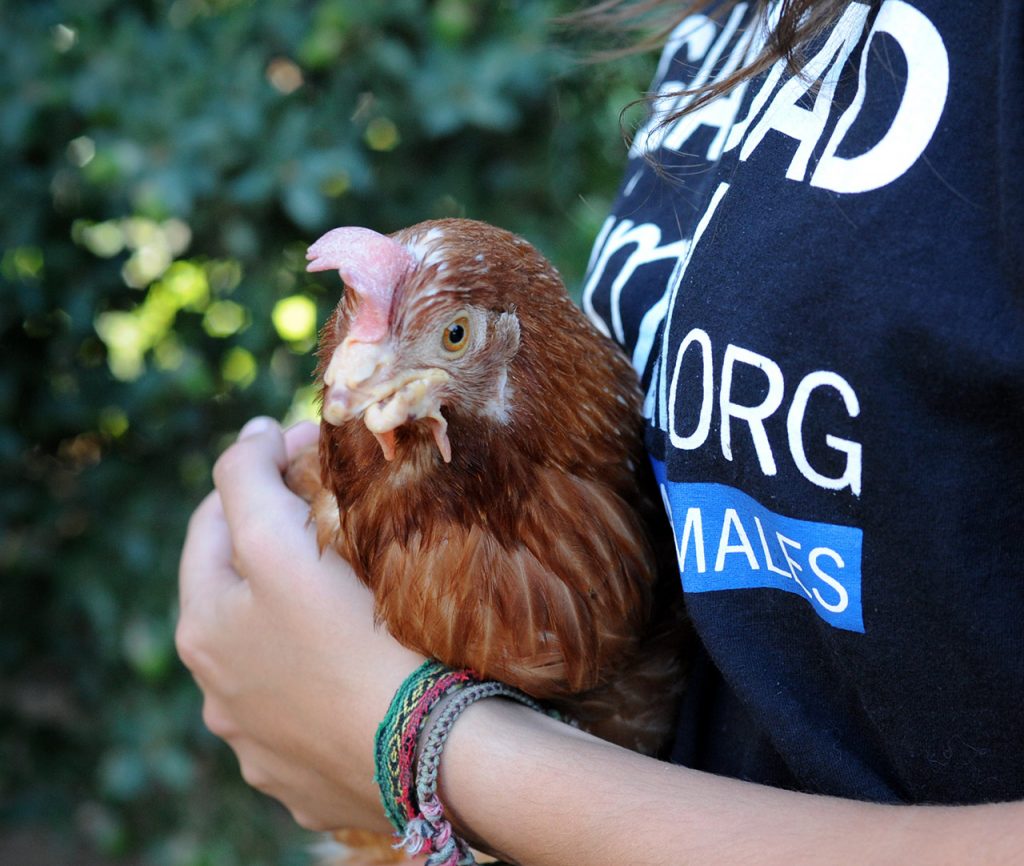
LIVE KINDLY
With rich emotional lives and unbreakable family bonds, farmed animals deserve to be protected.
You can build a kinder world by replacing animal food products with plant‑based ones.

